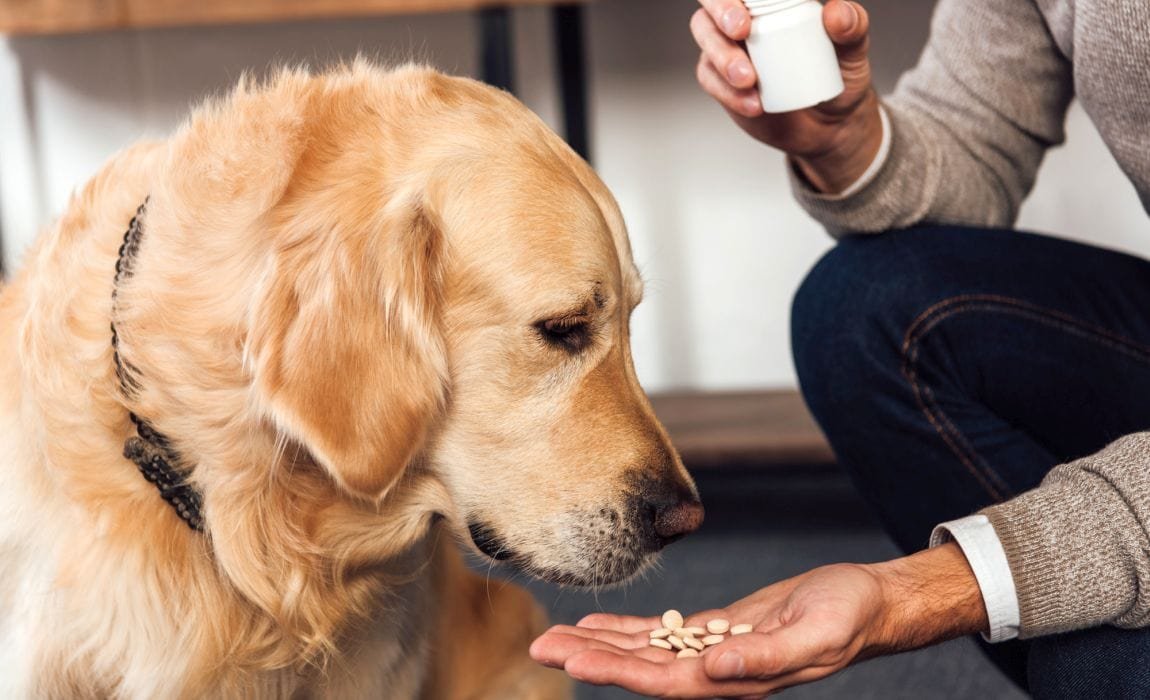Can Dogs Eat Walnuts? A Guide to Feeding Your Dog Nuts Safely

Are you curious about whether or not it’s safe for your beloved canine companion to enjoy the delicious taste of walnuts? While walnuts have been a part of the human diet for thousands of years, they can be dangerous for dogs to consume. In this blog, we’ll explore the answers to the question, “Can dogs eat walnuts?” We’ll look at the potential risks and benefits of giving your pup walnuts, and provide you with some tips to keep your furry friend safe. So, grab a handful of walnuts and let’s dive in!
Benefits of Eating Walnuts
Walnuts are a superfood that are packed with a wide variety of health benefits. They are a great source of omega-3 fatty acids, which can help reduce inflammation, promote healthy brain function, and even lower cholesterol levels. Walnuts also contain a good amount of protein, fiber, vitamins, minerals, and antioxidants. They are also a great source of plant-based iron and calcium. But can dogs eat walnuts? The answer is yes, but with caution.
While walnuts can provide some nutritional benefits for your pup, it is important to keep in mind that walnuts can also be dangerous for your pup if consumed in large amounts. Walnuts are high in fat, and if your pup consumes a large amount of them, it can cause digestive upset, vomiting, and even pancreatitis. Additionally, walnuts can be a choking hazard for dogs, so it is important to ensure that they are properly chopped and never given to a pup whole. It is also important to note that the shells of walnuts can be toxic to dogs, so it is important to remove them before feeding your pup. Additionally, walnuts should always be unsalted, as salt can be dangerous for dogs in large amounts.
Overall, walnuts can be a healthy snack for your pup, as long as they are given in moderation. Make sure to always check with your veterinarian before giving your pup any new food, as they will be able to provide guidance on the right amount and type of snacks for your pup.
Nutrition Value
When it comes to canine nutrition, many pet owners wonder: Can dogs eat walnuts? The answer is both yes and no. Yes, dogs can eat walnuts in moderation; however, due to the high levels of fat and sodium, walnuts should be given in small amounts and only as an occasional treat. Walnuts contain valuable vitamins and minerals, such as Vitamin E, copper, magnesium, and phosphorus, that can help improve a dog’s skin, coat, and overall health. However, due to their high fat content, walnuts can also lead to weight gain and digestive issues if fed too frequently. Ultimately, it’s important to practice moderation when feeding walnuts to your pup, and always consult your veterinarian if you have questions about your dog’s diet.

Health Benefits
Walnuts are nutritious and delicious, and dogs may be tempted to join in the fun of noshing on these crunchy treats. But can dogs eat walnuts? The answer is yes, but with some important caveats. While walnuts are packed with health benefits for humans, they may not be the best snack for dogs. They contain high amounts of fat, which can lead to an upset stomach and other digestive issues. Additionally, walnuts can be a choking hazard for dogs, so it is important to only give them walnuts in small, manageable pieces.
If you choose to give your pup a walnut treat, be sure to monitor them closely for any signs of discomfort and consult your veterinarian if needed.
Risks of Eating Walnuts
Walnuts are a delicious and nutritious snack, but can dogs eat them safely? Unfortunately, the answer is no. Walnuts are a popular human food, but they are not safe for dogs to eat. Walnuts contain a compound called persin, which is toxic to dogs and can cause digestive upset, vomiting, and diarrhea. Persin is a naturally occurring substance found in several plant species, including walnuts, avocados, and some species of mold. Dogs are particularly sensitive to persin, so it’s important to keep them away from walnuts.
In addition to persin, walnuts also contain high amounts of fats and oils. While these fats and oils can be beneficial for humans, they can cause serious digestive issues in dogs. Eating too many walnuts can cause pancreatitis, which is a serious and potentially life-threatening condition. Additionally, walnuts can contain aflatoxins, which are naturally occurring toxins produced by certain molds. These toxins can be very dangerous for dogs and can cause liver damage if ingested.
Finally, it’s important to remember that walnuts are a choking hazard for dogs. The small size of walnuts can make them difficult for dogs to swallow, and if they get stuck in their throat they can cause serious damage or even death. In conclusion, walnuts are not safe for dogs to eat. If your dog eats a walnut, it’s important to monitor them closely for signs of digestive upset and to contact your veterinarian immediately if any symptoms arise. It’s also important to keep walnuts out of reach of your dog to ensure their safety.
Choking Hazard
Are you worried that you may have accidentally given your pup a walnut? While walnuts are a good source of healthy fats, vitamins, minerals, and antioxidants for humans, they are a choking hazard for dogs. Walnuts are also high in fat, which can cause pancreatitis in dogs if ingested in large amounts. As a result, it’s best to keep walnuts away from your pup and opt for healthier snacks like carrots and apples.
Allergy Risk
It’s no secret that dogs love to eat just about anything, including human food. But when it comes to walnuts, it’s important to exercise caution. Walnuts can be dangerous for dogs to eat, as they contain a type of toxin that can cause an allergic reaction in some dogs. Symptoms of an allergic reaction can range from mild to severe and include vomiting, diarrhea, and skin irritation. If you think your pup has consumed walnuts, contact your veterinarian right away.

Weight Gain Risk
Are walnuts good for dogs? The short answer is no. Walnuts can be harmful to dogs and can increase the risk of weight gain. Walnuts contain high levels of fat and calories which can lead to weight gain. Additionally, walnuts can cause digestive issues and can even be toxic to some dogs. While walnuts may provide some health benefits, the risks far outweigh the benefits, so it’s best to avoid feeding walnuts to your canine companion.
Conclusion
No, dogs can’t eat walnuts! Walnuts can be toxic to dogs as they contain high levels of omega-6 fatty acids and can cause gastrointestinal upset. So to keep your furry friend safe, it’s best to keep walnuts away from them!”
Recommendations
Are you wondering if dogs can eat walnuts? While walnuts are a healthy snack for humans, it’s not recommended to give them to your pup. Dogs can’t digest walnuts and the husks can be a choking hazard. There are plenty of other snacks that are safe and healthy for dogs, so it’s best to stick to those if you’re looking for something to treat your pooch.
Final Thoughts
When it comes to the question of whether or not dogs can eat walnuts, the answer is a definite no. Walnuts are a hard, crunchy nut with a high fat content that can be difficult for dogs to digest. Furthermore, walnuts can contain a toxin called juglone which can cause vomiting and diarrhea in dogs if ingested in large quantities. With these potential risks, it’s best to keep walnuts away from your four-legged friends.
FAQs
Can dogs eat walnuts?
Yes, walnuts are safe for dogs to eat in moderation. However, they should be given whole, unsalted walnuts as the salt and oils found in flavored and processed varieties can be harmful.




